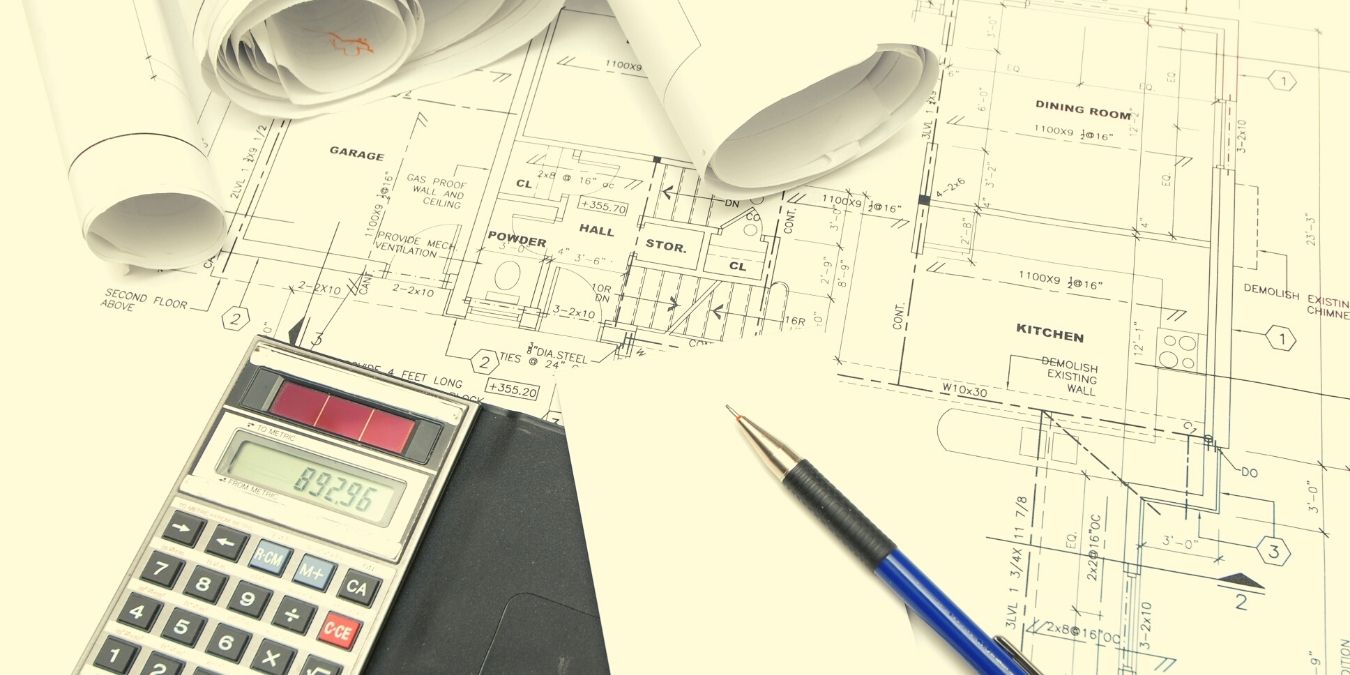Home>diy>Building & Construction>What Are Soft Costs In Construction


Building & Construction
What Are Soft Costs In Construction
Modified: January 23, 2024
Learn what soft costs are in the context of building construction. Discover how these expenses impact project budgets and timelines.
(Many of the links in this article redirect to a specific reviewed product. Your purchase of these products through affiliate links helps to generate commission for Storables.com, at no extra cost. Learn more)
Introduction
Welcome to the world of construction, where the art of building is coupled with the science of project management. When embarking on a construction project, it is important to consider not only the obvious costs like labor and materials but also the often-overlooked expenses known as soft costs. These costs may not be tangible or directly tied to the physical structure, but they play a crucial role in the successful completion of a construction project.
Soft costs, also known as indirect costs, are the expenses incurred during the planning, design, and management phases of a construction project. While hard costs refer to the physical components of a building, such as materials and labor, soft costs encompass a wide range of intangible items and services required for a project’s overall success. These costs are vital to consider and control to ensure the project stays within budget and meets all necessary requirements.
Soft costs can account for a significant portion of a construction project’s overall budget, sometimes reaching up to 30% or more. They cover a diverse range of expenses, including architectural and engineering fees, permits and approvals, legal and accounting services, insurance premiums, and marketing and advertising. Additionally, soft costs may also include expenses related to project management, such as project planning, scheduling, and coordination.
It is important to note that soft costs are not fixed and can vary greatly depending on the size, complexity, and location of a construction project. For example, a large-scale commercial development will have higher soft costs compared to a residential home construction due to the additional layers of complexity and regulatory requirements involved.
To successfully manage a construction project, it is crucial to have a thorough understanding of the various soft costs involved. By carefully considering these costs during the planning phase, project stakeholders can make informed decisions and allocate resources effectively.
In the following sections, we will explore some common examples of soft costs in construction, discuss the importance of managing them, and provide strategies for controlling these expenses to ensure the success of construction projects.
Key Takeaways:
- Soft costs in construction, though intangible, are crucial for project success. They encompass expenses like design fees, permits, insurance, and marketing. Managing them is vital for budget control, resource allocation, and risk mitigation.
- Strategies for controlling soft costs include thorough planning, early engagement of design professionals, efficient project management, value engineering, and transparent financial reporting. Proactive management ensures successful construction projects within budget and timeline constraints.
Read more: What Are Soft Costs For Construction
Definition of Soft Costs in Construction
Soft costs, also known as indirect costs, are the expenses incurred during the planning, design, and management phases of a construction project. Unlike hard costs, which are directly tied to the physical construction of a building, soft costs are intangible and often go unnoticed. However, they are essential for the successful completion of any construction project.
Soft costs can be broadly categorized into several key areas:
1. Design and Planning:
Soft costs related to design and planning include architectural and engineering fees, interior design and space planning, and building permit fees. These costs are necessary to ensure that the project meets all regulatory requirements, adheres to architectural standards, and is designed with the utmost functionality and aesthetics in mind.
2. Project Management:
Project management soft costs encompass the various expenses associated with overseeing and coordinating the construction process. This includes costs for project managers, site supervisors, quality control personnel, and construction administration. Proper project management ensures that the project stays on schedule, meets quality standards, and effectively manages resources.
3. Legal and Administrative:
Legal and administrative soft costs involve expenses for legal services, permits, inspections, and insurance. These costs are necessary to comply with local building codes, zoning regulations, and safety standards. Additionally, insurance premiums protect against unforeseen risks and liabilities that may arise during the construction process.
4. Marketing and Advertising:
In some cases, soft costs may include marketing and advertising expenses. This is particularly relevant for commercial construction projects, where promoting the finished property to potential buyers or tenants is crucial. Marketing and advertising costs may include brochures, signage, website development, and other promotional materials.
Overall, soft costs are critical to the success of a construction project and should not be overlooked. Ignoring or underestimating these costs can lead to budget overruns, delays, and decreased profitability. By understanding and properly managing soft costs, project stakeholders can ensure the smooth execution of the project, meet or exceed client expectations, and maximize overall project success.
Examples of Soft Costs in Construction
Soft costs play a significant role in construction projects, covering a wide range of expenses that are essential for a project’s success. Let’s delve into some common examples of soft costs in construction:
1. Architectural and Engineering Fees:
One of the major soft costs in construction is the fees paid to architects and engineers. These specialists provide design, planning, and technical expertise to ensure that the project meets all structural, safety, and aesthetic requirements. Their fees can vary depending on the complexity and scale of the project.
2. Permits and Approvals:
Obtaining the necessary permits and approvals is often an overlooked soft cost. Construction projects need to comply with local building codes, zoning regulations, and environmental standards. The costs associated with acquiring permits and approvals can include application fees, third-party assessments, and professional consultations.
Read more: What Is Soft Landscape Construction
3. Legal and Accounting Services:
Construction projects involve legal and accounting tasks that require professional services. Legal costs may include drafting and reviewing contracts, resolving disputes, and ensuring compliance with relevant laws and regulations. Accounting services cover financial reporting, tax planning, and auditing to ensure financial integrity and adherence to reporting standards.
4. Insurance Premiums:
Construction projects often require various insurance coverages, such as general liability insurance, workers’ compensation insurance, and builder’s risk insurance. These premiums protect against potential risks, accidents, and damages that may occur during the construction process.
5. Project Management:
Effective project management is crucial for successful construction projects. Soft costs related to project management include the compensation of project managers, site supervisors, and administrative staff. These professionals oversee and coordinate various aspects of the project, ensuring efficient resource allocation, scheduling, and quality control.
6. Marketing and Advertising:
In commercial construction projects, marketing and advertising costs are often included as soft costs. This includes creating promotional materials, advertising the project to potential buyers or tenants, and developing a marketing strategy to attract interest in the completed property.
Read more: What Are Construction Costs
7. Utilities and Temporary Facilities:
During the construction process, temporary facilities such as construction site offices, portable toilets, fencing, and utilities, including electricity and water, are necessary. The costs associated with these temporary facilities and utilities are considered soft costs.
These are just a few examples of soft costs in construction, but the overall soft cost breakdown can vary depending on the specific project requirements. It is crucial for project stakeholders to thoroughly assess and budget for soft costs to ensure accurate financial planning and successful project execution.
Importance of Managing Soft Costs in Construction Projects
Managing soft costs is crucial for the successful completion of construction projects. These indirect expenses may not be as visible as hard costs, but they can significantly impact the project’s budget, timeline, and overall success. Here are some key reasons why effective management of soft costs is essential:
1. Budget Control:
Soft costs can make up a significant portion of a construction project’s budget. By managing and controlling these expenses, project stakeholders can prevent budget overruns and ensure that financial resources are allocated effectively. Proper budget control allows for accurate cost forecasting, reduces the risk of financial constraints, and increases the project’s profitability.
2. Resource Allocation:
Soft costs encompass various resources, such as professional services, permits, and administrative tasks. By managing these costs, project managers can efficiently allocate resources and optimize project workflow. This includes strategically assigning personnel, coordinating with multiple stakeholders, and streamlining the overall construction process. Effective resource allocation improves productivity, minimizes delays, and enhances project efficiency.
Read more: What Is Contingency Cost In Construction
3. Risk Mitigation:
Managing soft costs can help mitigate risks associated with legal issues, regulatory compliance, and unforeseen circumstances. By proactively addressing legal and administrative tasks, such as securing permits and approvals, resolving potential disputes, and ensuring compliance with safety standards, project stakeholders can minimize the risk of costly setbacks and delays.
4. Project Schedule Adherence:
Soft costs can impact project timelines if not managed effectively. Delays in obtaining permits, approvals, or resolving legal issues can disrupt the construction schedule. By closely monitoring and managing these soft costs, project managers can ensure that the necessary tasks are completed on time, allowing for a smooth and timely project delivery.
5. Quality Control:
Proper management of soft costs includes overseeing architectural and engineering services, as well as project management. By investing in high-quality design and effective project management, project stakeholders can maintain high standards of quality throughout the construction process. This results in a finished product that meets or exceeds client expectations and enhances overall project success.
6. Stakeholder Communication:
Managing soft costs also involves effective communication and collaboration with stakeholders. By keeping all parties informed about soft cost factors, including budget updates, regulatory compliance, and project status, project managers can foster transparent and collaborative relationships. This leads to increased stakeholder satisfaction and a higher likelihood of repeat business or referrals.
In summary, the management of soft costs is essential for construction projects. By effectively controlling these indirect expenses, project stakeholders can maintain budget control, optimize resource allocation, mitigate risks, adhere to project schedules, ensure quality control, and foster strong stakeholder relationships. It is imperative to recognize the importance of soft costs and integrate their management into every construction project for long-term success.
Read more: What Is Overhead Cost In Construction
Strategies for Controlling Soft Costs in Construction
Controlling soft costs in construction projects requires careful planning, monitoring, and proactive strategies. By implementing the following strategies, project stakeholders can effectively manage and control these indirect expenses:
1. Thorough Planning and Budgeting:
Start by conducting a comprehensive analysis of all potential soft costs during the planning phase. Develop a detailed budget that includes allowances for various soft cost items. This will ensure that you have allocated sufficient funds for these expenses and have a clear understanding of their impact on the overall project budget.
2. Early Engagement of Design Professionals:
Engage architects, engineers, and design professionals early in the planning stage. Their expertise can help identify and address potential design-related issues that may lead to costly changes or delays. Clear and precise design specifications will reduce the need for costly revisions further down the line.
3. Streamline Permit and Approval Processes:
Work closely with the relevant authorities to expedite the permitting process. Understand all requirements and develop a streamlined approach to submit complete and accurate documentation. Timely approval of permits can help prevent delays and associated costs.
Read more: What Is Indirect Cost In Construction
4. Efficient Project Management:
Implement effective project management practices to keep the construction process on track and avoid unnecessary expenses. This includes setting clear project objectives, establishing realistic timelines, delegating responsibilities, and maintaining open communication channels between stakeholders.
5. Value Engineering:
Consider value engineering techniques that focus on finding cost-effective alternatives without compromising quality. Collaborate with design professionals and suppliers to identify opportunities for cost savings without sacrificing functionality or aesthetics.
6. Vendor and Supplier Management:
Negotiate competitive pricing with vendors and suppliers, and regularly evaluate their performance. Work with reliable and reputable suppliers who offer competitive pricing, quality products, and reliable delivery timelines. Regularly reviewing supplier contracts can also help identify opportunities for cost savings.
7. Transparent Financial Reporting:
Maintain accurate and transparent financial reporting throughout the construction project. Regularly monitor and analyze project costs, providing stakeholders with regular updates on soft costs and overall budget performance. This allows for timely adjustments and informed decision-making.
Read more: What Is Cost-Plus In Construction
8. Risk Management and Insurance:
Implement comprehensive risk management strategies to minimize unforeseen expenses. Adequate insurance coverage protects against potential risks and liabilities. Regularly review insurance policies and ensure they align with the project’s specific needs.
9. Continuous Communication and Collaboration:
Foster open and transparent communication among all project stakeholders, including architects, engineers, contractors, and clients. Regular project meetings, progress reports, and collaborative problem-solving sessions can help identify and address potential cost overruns or scope creep before they escalate.
By implementing these strategies, project stakeholders can effectively manage and control soft costs in construction projects. Careful planning, efficient project management, effective communication, and ongoing evaluation will ensure that soft costs are controlled, leading to successful project outcomes within budget and timeline constraints.
Conclusion
Soft costs may not be as tangible as hard costs, but they play a crucial role in the success of construction projects. By definition, soft costs encompass the indirect expenses incurred during the planning, design, and management phases of construction. They cover a wide range of expenses, including architectural and engineering fees, permits and approvals, legal and accounting services, insurance premiums, and marketing and advertising.
Effectively managing soft costs is essential for several reasons. Firstly, it helps maintain budget control and prevents cost overruns. By allocating resources efficiently and mitigating risks, project stakeholders can allocate funds effectively and ensure the project stays within budget. Additionally, managing soft costs helps optimize resource allocation, adhere to project schedules, maintain quality control, and foster transparent communication with stakeholders.
Implementing strategies for controlling soft costs is vital for successful construction projects. Thorough planning and budgeting, early engagement of design professionals, streamlining the permitting process, efficient project management, value engineering, vendor and supplier management, transparent financial reporting, risk management and insurance, and continuous communication and collaboration are key strategies to consider.
The effective management of soft costs requires a proactive approach from all parties involved in a construction project. It is essential to stay diligent and continuously monitor and evaluate soft costs throughout the project’s lifecycle. By doing so, project stakeholders can maximize the project’s overall success, achieve client satisfaction, and enhance profitability.
In conclusion, soft costs should never be underestimated or overlooked in construction projects. By recognizing their significance and implementing strategies to control and manage them, project stakeholders can ensure the smooth execution of the project, meet or exceed client expectations, and achieve long-term success in the dynamic and challenging field of construction.
Frequently Asked Questions about What Are Soft Costs In Construction
Was this page helpful?
At Storables.com, we guarantee accurate and reliable information. Our content, validated by Expert Board Contributors, is crafted following stringent Editorial Policies. We're committed to providing you with well-researched, expert-backed insights for all your informational needs.









0 thoughts on “What Are Soft Costs In Construction”